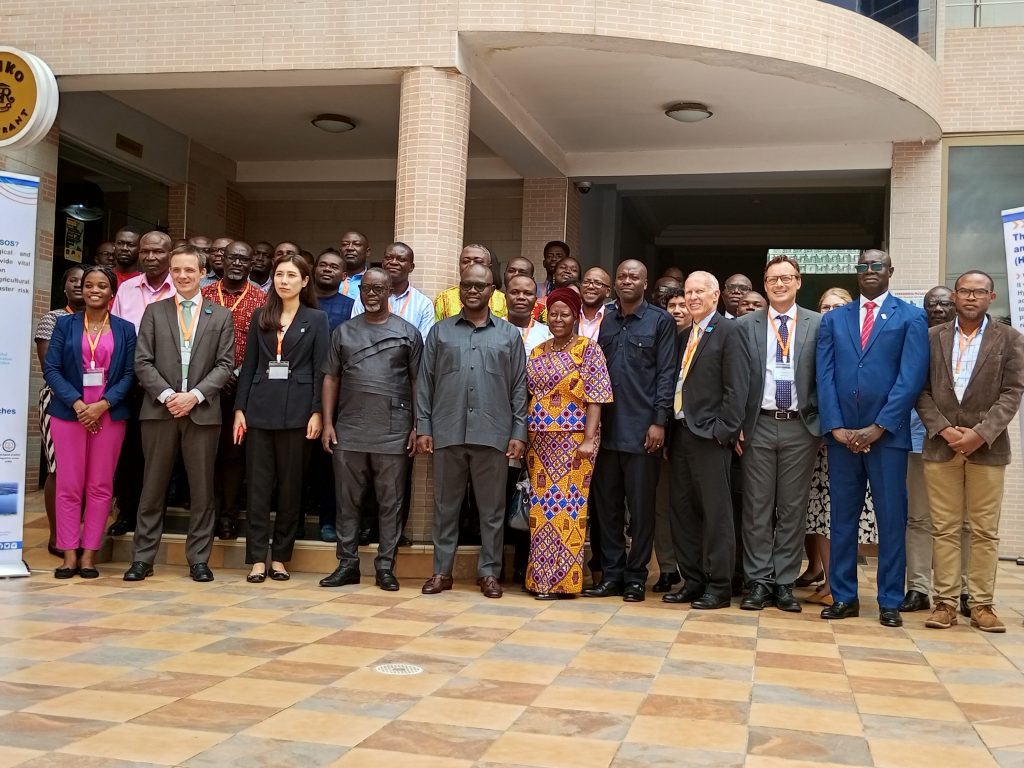By Iddi Yire
Accra, Oct 05, GNA – Mr Francis Asenso-Boakye, Minister of Works and Housing, has reiterated Ghana’s commitment to combating climate change.
He noted that one of the biggest challenges and risks facing the world’s population was the global extreme hydro-meteorological conditions, which include frequent perennial floods and droughts, as well as potential disputes over water usage, because of increased demand on water resources.
“The whole world runs on water. Clean water is vital for human health, industry, agriculture, and energy production. Yet, the world’s water systems face increased formidable threats due to unsustainable management and climate change,” the Minister stated.
Mr Asenso-Boakye made the remarks at a two-day workshop on the establishment of the Hydrological Status and Outlook System (HydroSOS) in Accra, Ghana.
The HydroSOS was initiated and launched in 2018 by the World Meteorological Organisation (WMO) to help produce analysis regularly of the current global hydrological condition and an outlook assessment of how the water situation may change over sub-seasonal to seasonal scales and taking into consideration the need to link this initiative closely with other related WMO activities.
The Accra meeting, which is being attended by participants from Ghana, Niger, Nigeria, the United Kingdom, and Switzerland seeks to create awareness of the HydroSOS in Ghana and strengthen the collaboration between meteorologists/hydrologists and the stakeholders.
It is being organised by the Ghana Meteorological Agency in collaboration with the Hydrological Services Department, the Water Resources Commission, the UK Centre for Ecology and Hydrology and the WMO.
He said the establishment of the HydroSoS aimed at monitoring and predicting global freshwater hydrological conditions should equip hydrologists, meteorologists, and other relevant experts from various state institutions with state-of-the-art tools, skills, and expertise to develop relevant drought indices, which would be used as proxies to track and quantify droughts.
He noted that the need to establish an operational global monitoring system such as the HydroSoS which could assess the current situation of surface and groundwater hydrological systems, or for forecasting how they would change in the future cannot be overemphasized.
According to the World Resources Institute, as many as 3.5 billion people could experience water scarcity by 2025, while demand is projected to grow by up to 30 per cent by 2050.
The Minister said water-related conflicts and political instability were on the rise and climate change is worsening the problem.
“Climate change is intensifying floods and droughts, shifting precipitation patterns and fuelling sea level rise,” Mr Asenso-Boakye said.
“It is on record that, about 90 per cent of natural disasters from 1995-2015 were water or heat related.”
He said with these challenges, it was incumbent on the nation’s professionals to develop new innovative data analysis tools to help decision-makers understand current and future water risks.
He said it was estimated that 20 million people were at risk of flooding globally, with the resulting damage totalling close to $80 billion; adding that this number could increase to 50 million in just 15 years.

He said it was worth noting, that, floods and droughts occur naturally, but climate change had accelerated the hydrological processes responsible.
Mr Asenso-Boakye said future climate change, population increase, and expanding economic activity, would only exacerbate drought problems.
He said the Government would continue to support institutions such as the Hydrological Services Department, the Ghana Meteorological Agency, and the Water Resources Commission, in their effort to collect and disseminate critical hydro-climatic data and information to inform our social-economic development.
Mr Eric Asuman, the Acting Director-General, Ghana Meteorological Agency said hydrological conditions of floods and droughts globally and their associated effect on potential conflicts in water usage were some of the greatest challenges and threats facing the world’s population today.
He said access to climate information jointly produced by scientists was an essential resort to climate-smart adaptation strategies to improve climate risk management.
Professors Alan Jenkins, Deputy Director, UK Centre for Ecology and Hydrology, said the HydroSOS community was growing around the world and that a lot of the United Nations member countries were now taking interest in it.
Mr Stefan Uhlenbrook, Director of Hydrology, Water, and Cryosphere, WMO, said it was very important to understand hydrological systems because it plays a crucial role in agricultural production.
GNA